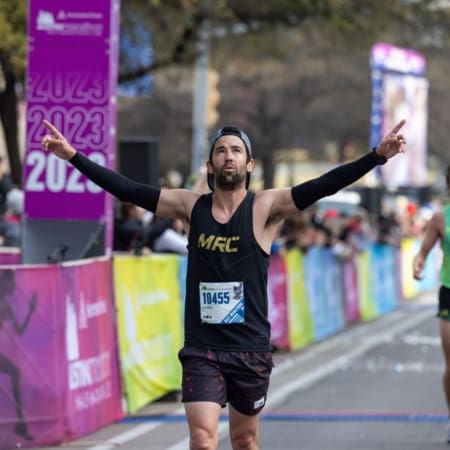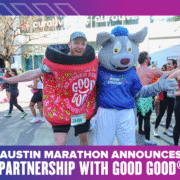The Power of Positive Self-Talk in Marathon Training
How Affirmations and Mindset Can Influence Your Training Outcomes
Training for a marathon is as much a mental challenge as it is a physical one. While hours of running, strength work, and nutrition planning are essential, your inner dialogue can be the hidden factor that determines whether you cross the finish line with a smile—or struggle to get there at all. Positive self-talk and affirmations are powerful tools that can sharpen your mindset, improve performance, and help you enjoy the journey.
Why Mindset Matters in Marathon Training
Your thoughts directly influence your emotions, which in turn affect your actions. When training gets tough—whether you’re hitting the wall during a long run or struggling to stick to your schedule—a negative mindset can cause you to slow down, skip sessions, or even quit altogether.
On the other hand, a positive mindset helps you:
-
Stay motivated through grueling weeks of training.
-
Push past discomfort when your legs and lungs beg you to stop.
-
Maintain consistency, even on days when motivation is low.
-
Recover faster by focusing on progress instead of setbacks.
The best athletes understand that mental resilience is built just like physical endurance—through consistent practice.
What is Positive Self-Talk?
Positive self-talk is the practice of using encouraging, supportive language toward yourself. It’s not about ignoring reality or pretending challenges don’t exist—it’s about framing those challenges in a way that fuels progress instead of self-doubt.
Example shift:
-
Negative: “I’ll never be able to run 26.2 miles.”
-
Positive: “I’m getting stronger every week and building toward 26.2 miles.”
The Role of Affirmations in Training
Affirmations are short, powerful statements you repeat to yourself to reinforce a desired belief or outcome. By saying these phrases regularly—especially during workouts or moments of self-doubt—you rewire your brain to focus on possibilities instead of limitations.
Examples for marathon training:
-
“I am strong, capable, and ready for this challenge.”
-
“Every step brings me closer to my goal.”
-
“I run with strength, endurance, and joy.”
Over time, these statements help replace doubt with confidence, especially during race day pressure.
How to Use Affirmations in Your Training Routine
-
Choose statements that resonate – Pick phrases that inspire you personally.
-
Repeat them daily – Morning, during training runs, or before bed.
-
Pair them with action – Affirmations are most powerful when you follow them with consistent training.
-
Use them as mental fuel – During long runs or tough intervals, repeat your affirmation in rhythm with your breath or strides.
Science Behind the Strategy
Research in sports psychology shows that self-talk and affirmations can:
-
Improve endurance performance.
-
Increase pain tolerance.
-
Enhance focus during competition.
-
Boost confidence in high-pressure situations.
By creating a consistent habit of positive self-talk, you can train your brain to respond constructively to challenges instead of retreating from them.
Bringing It All Together
The marathon is a mental race as much as it is a physical one. By practicing positive self-talk and incorporating affirmations into your training, you can strengthen your mental resilience, stay committed to your goals, and make the journey more enjoyable.
Next time you lace up your shoes, remember: your body runs the miles, but your mind carries you to the finish line.










